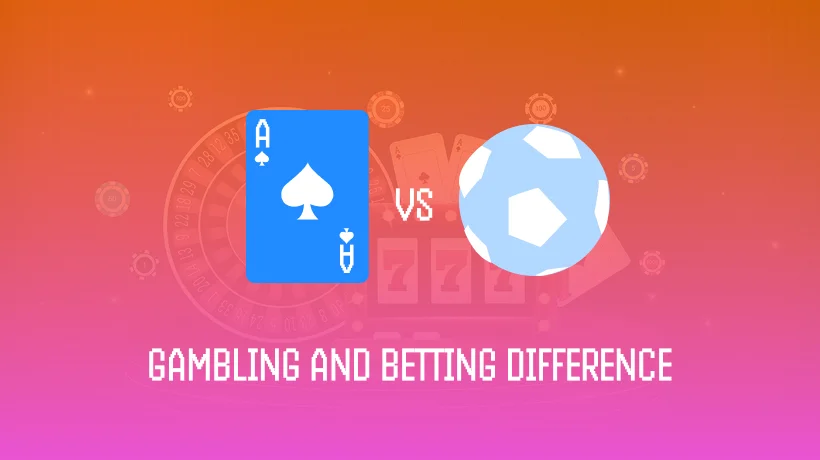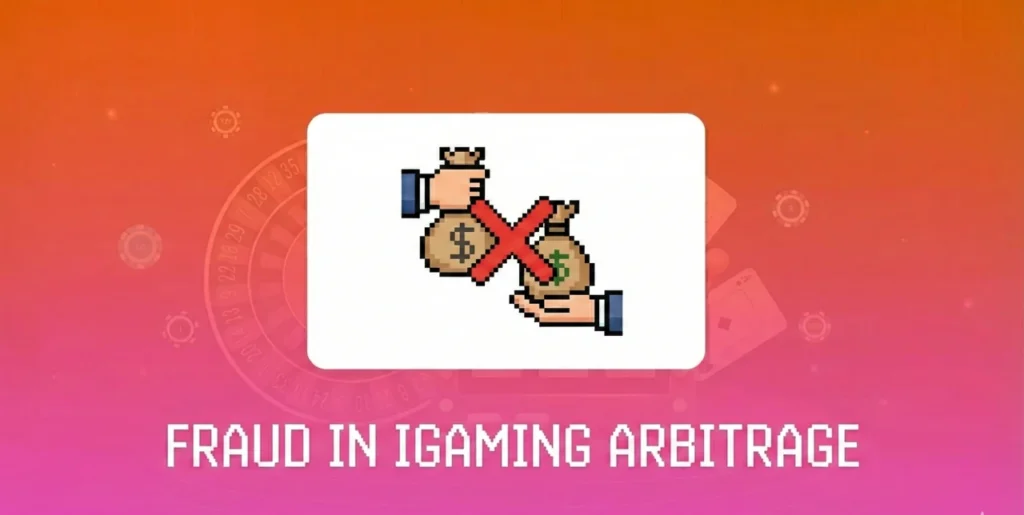Gambling vs. Betting: A Simple Guide to Telling Them Apart
Here’s the thing: most people use these terms interchangeably, and they’re not wrong. But the distinction does matter in some important ways.
The confusion makes perfect sense. Both activities involve putting your money at risk on something uncertain. Whether you’re betting on next Sunday’s game or playing slots, you might win or lose. The basic concept is identical.
But here’s where it gets interesting (and sometimes expensive if you don’t understand the rules). Different places treat these activities differently under the law.
What’s called “betting” in one state might need a completely different license than “gambling” in another. The tax rules can vary. Even the consumer protections change depending on which category your activity falls into.
So why does this matter to you? A few reasons. First, knowing the difference helps you understand what’s legal where you live. Second, it affects which protections you have as a consumer. And third, it impacts how any winnings get taxed.
Both gambling and betting involve the same fundamental risk: you’re putting money on the line for uncertain outcomes. The house usually has an edge regardless of what you call it. But understanding how regulators, operators, and the law see these activities can help you make better decisions.
We’ll break down the actual definitions, show you how different places handle them, and give you real examples so you know exactly what you’re dealing with.
The Basic Definitions – What Each Term Actually Means
What is Gambling?
Gambling serves as the big umbrella term that covers all wagering activities. Think of it like saying “vehicles” when you’re talking about cars, trucks, motorcycles, and buses together.
The UK Gambling Commission, which regulates one of the world’s largest gambling markets, provides the clearest definition. Under the Gambling Act 2005, gambling encompasses “gaming, betting and participating in a lottery.” That’s everything from slot machines to sports bets to scratch cards.
But here’s what really matters legally. For any activity to count as gambling, it needs three specific elements:
- Consideration: You put something valuable at risk (usually money)
- Chance: The outcome is uncertain or involves luck
- Prize: You can win something of value
All three must be present. Remove any one, and it’s not legally gambling.
What is Betting?
Betting is more specific. It means wagering on external events – things happening outside of a game you’re directly playing. The UK Gambling Commission defines betting as “making or accepting a bet on the outcome of a race, competition or other event.”
So when you bet on who’ll win the Super Bowl, that’s betting. You’re not playing in the game yourself. You’re predicting what other people will do. Same goes for betting on horse races, political elections, or whether it’ll rain tomorrow.
But notice something important: betting still involves the same three legal elements as gambling. You’re risking money (consideration) on an uncertain outcome (chance) to potentially win more money (prize).
The Relationship Between Them
Here’s where it gets clearer:
| Term | Scope | Examples |
|---|---|---|
| Gambling | Umbrella term for all wagering | Casinos, sports betting, lottery, poker |
| Betting | Subset focused on external events | Sports betting, race betting, political betting |
| Gaming | Subset focused on games of chance | Slot machines, roulette, blackjack |
Betting is actually a type of gambling, not something separate. It’s like saying “sedans are a type of car” rather than “sedans versus cars.”
The confusion happens because different industries use different terms. Casino operators often say “gaming” to sound more respectable. Sports companies prefer “betting” because it sounds more skill-based. But legally and practically, they’re all forms of gambling.
This hierarchy matters because it affects licensing, regulation, and taxes. Understanding it helps you navigate the rules no matter what an operator calls their service.
How Different Places Treat These Activities
United States Approach
The U.S. makes things complicated by letting each state decide for itself. What’s legal in Nevada might be banned next door in Utah. Currently, 38 states plus Washington D.C. allow sports betting, but only about half permit online casino games.
Here’s where the terminology really matters: states often require separate licenses for different activities. A company might need a “sports betting license” in one state and a “gaming license” in another for basically the same business model.
The tax differences are wild. States charge operators anywhere from 6.75% in Iowa and Nevada up to 51% in New Hampshire and New York. That’s a massive range for what’s essentially the same activity.
UK System
The UK keeps it simpler with one regulator handling everything. The UK Gambling Commission oversees all commercial gambling under the Gambling Act 2005, whether you call it betting, gaming, or anything else.
They use clear categories:
- Remote gambling: Online activities
- Non-remote gambling: Land-based activities
- Gaming: Games of chance like slots
- Betting: Sports and events
- Lotteries: Prize draws
But here’s the key: they’re all just types of gambling requiring similar licenses and protections.
Why Location Matters
Your zip code determines what’s legal and what protections you get. Check out these differences:
| Jurisdiction | Sports Betting | Online Casino | Operator Tax Rate |
|---|---|---|---|
| Nevada | Legal | Legal | 6.75% |
| New York | Legal | Legal | 51% |
| Utah | Illegal | Illegal | N/A |
| UK | Legal | Legal | 15-21% |
Same activities, totally different rules. In some places, the government runs the gambling operations directly. In others, private companies compete freely.
This affects you in practical ways. Consumer protections vary dramatically. Some jurisdictions require operators to offer self-exclusion tools and spending limits. Others don’t. Tax treatment for your winnings changes too – the UK generally doesn’t tax gambling winnings for individuals, while the U.S. taxes all gambling income.
Real Examples – Which Activities Fall Where
Clear Gambling Activities
These are the no-brainer gambling activities that everyone agrees on. You’re playing directly against the house, and chance dominates the outcome:
- Pure chance games: Slot machines and video poker, Roulette and craps, Lottery games and scratch cards, Keno and bingo
- Casino table games: Blackjack, Baccarat, Pai Gow Poker, Most card games where you play against the dealer
Clear Betting Activities
These involve wagering on external events – things happening outside a game you’re playing yourself:
- Sports and competition betting: NFL, NBA, MLB, college sports, Soccer matches, Tennis tournaments, Olympics, World Cup events, E-sports competitions
- Other event betting: Horse racing, Greyhound racing, Political elections, Entertainment awards (Oscars, Grammys), Weather and novelty bets
The Gray Areas
This is where things get messy, and different places make different decisions:
| Activity | Skill Component | Nevada Says | Most States Say |
|---|---|---|---|
| Daily Fantasy Sports | High (lineup research) | Gambling | Skill-based game |
| Poker | Medium (strategy matters) | Gambling | Usually gambling |
| Social Casino Games | None (just for fun) | Not gambling | Not gambling |
| Season Fantasy Sports | High (research + management) | Gambling | Usually skill-based |
What This Means for You – Practical Takeaways
Stop worrying about whether something is called gambling or betting. Both involve the same fundamental risk: you’re putting money on uncertain outcomes. The house usually has an edge either way.
Instead, focus on what actually matters for your wallet and legal protection. Before you put money down anywhere, ask these questions:
- Is the operator licensed? Licensed operators must follow consumer protection rules, keep your funds separate, and submit to regular audits.
- What are my local laws? The same activity might be legal in one state and illegal in another. Don’t assume something’s okay just because you can access it online.
- What protections do I have? Licensed operators typically offer self-exclusion tools, deposit limits, and customer support for problem gambling. Unlicensed sites rarely do.
Here’s what to remember about the gambling versus betting debate:
- Betting is actually a type of gambling – not a separate, safer activity
- Your location determines what’s legal – same activity, different rules by state/country
- Licensed operators matter more than terminology – look for proper licensing regardless of what they call themselves
- Tax implications are similar – winnings are usually taxable income whether from “gambling” or “betting”
- Risk levels depend on the specific activity – not whether it’s called gambling or betting
The terminology debate is mostly academic. What matters is understanding the risks, checking legality in your area, and only using properly licensed operators that offer real consumer protections.
Don’t let marketing language fool you into thinking one type of wagering is inherently safer than another.





